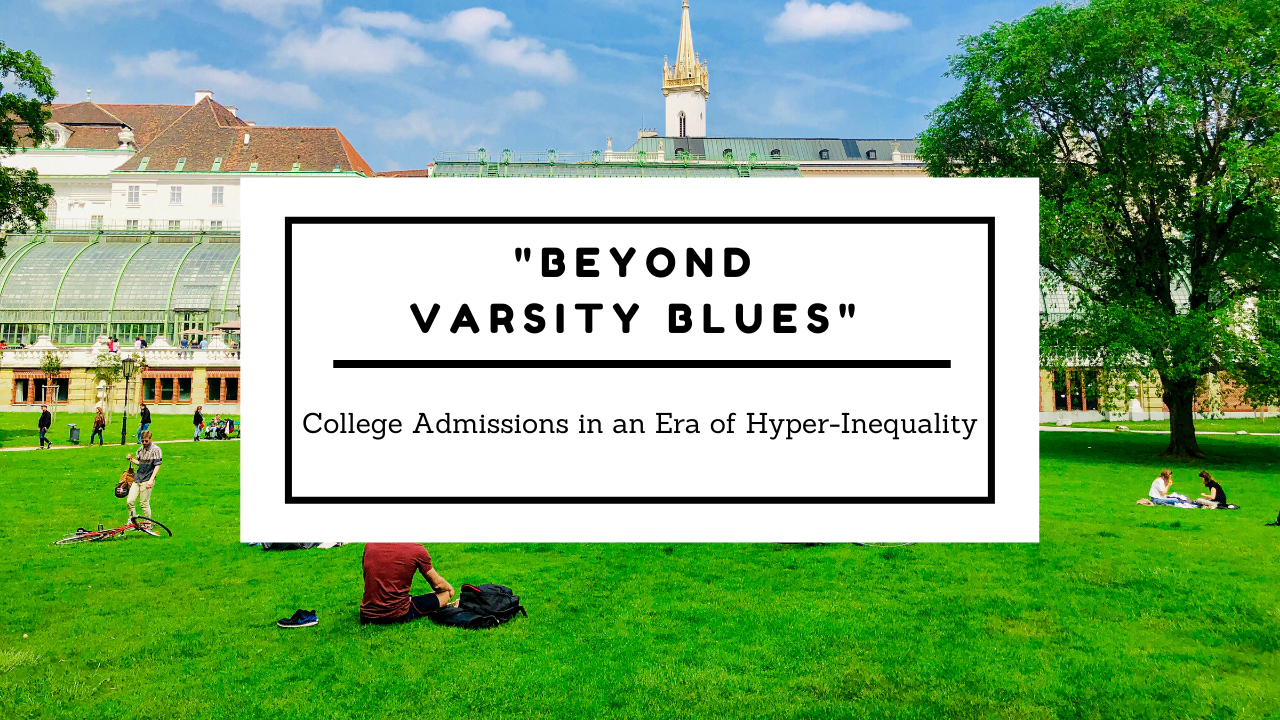 Snapshot: This case examines the influence of family wealth on college admissions in the wake of the 2019 college admissions bribery scandal. While bribery is plainly unethical, the moral status of other instances where families spend money to help their children secure spots at selective colleges is less clear. What are the ethical implications of family expenditures—from music lessons to SAT tutoring to private schooling to large donations—that can make students more attractive to colleges and universities?
Snapshot: This case examines the influence of family wealth on college admissions in the wake of the 2019 college admissions bribery scandal. While bribery is plainly unethical, the moral status of other instances where families spend money to help their children secure spots at selective colleges is less clear. What are the ethical implications of family expenditures—from music lessons to SAT tutoring to private schooling to large donations—that can make students more attractive to colleges and universities?
Case Description: In 2019, news broke that a number of wealthy parents had secured admission for their children at prestigious universities by paying off standardized test officials to falsify their students’ scores and university team coaches to recruit their children—many of whom had little or no experience with the sport. These cases plainly represented instances of morally impermissible bribery: wealthy parents paid college counselors and university officials to provide illicit support for their children’s college applications. Unsurprisingly, Americans responded to this news with a mix of outrage, disappointment, and a dose of cynicism—don’t all wealthy families pay to get their children into elite colleges one way or another?
Case created by: Ellis Reid, Nithyani Anandakugan, Sara Nichols, and Meira Levinson
This case study aims to do two things:
(1) offer an entrypoint for thinking about the ethical dilemma(s) raised by both the ‘Varsity Blues’ scandal as well as the more routine ways that wealth can tilt the college admissions process towards the wealthy, and
(2) provide resources—including discussion questions and links for further reading—that readers can use to help facilitate their own discussions of the ethical dilemma(s) that wealth and income inequality pose for college admissions.
The Dilemma: While much of the reporting on what came to be known as the ‘Varsity Blues’ scandal focused on the boldness and scope of the plot, including the involvement of more than one celebrity couple, this news also started conversations about the other, legal ways parents use money to improve their students’ college admissions prospects. Some parents, for instance, hire SAT and ACT tutors to raise their kids’ test scores and college counselors to workshop their application essays. Others send their students to expensive sports clinics or pay for years of music lessons, knowing full well that extracurricular excellence will almost certainly help their child’s application stand out. Many upper-middle class and wealthy families choose where to live and pay premium housing prices to gain access to highly-ranked public schools—or they simply buy their way out of the public system altogether by sending their children to highly-regarded private schools. Those with the means may even offer generous donations to universities in order to curry favor with admissions officers. Each of these examples represents a legal way to use wealth to improve a student’s college admissions chances. Together, they raise questions about the ethics of the college admissions process as a whole in an era of economic hyper-inequality.
This case splits the ethical dilemmas concerning wealth inequality and college admissions into three thematic areas. The first page explores the aims of higher education as well as the urgency that some families feel about sending their students to elite universities. The second probes ideas of meritocracy and equity to uncover some of the ways that wealth in effect buys merit. The third attempts to navigate the blurry line between family autonomy and state regulation that policymakers may encounter when responding to these ethical dilemmas. Each page provides some context followed by links to relevant articles, as well as a set of discussion questions. Readers may find the discussion questions most useful after reading the articles since the questions are tailored to the perspectives provided in the linked texts. Readers may also want to review the Justice in Schools discussion protocol as an additional resource for facilitating meaningful discussion on ethical dilemmas.

